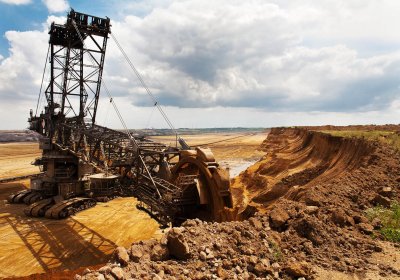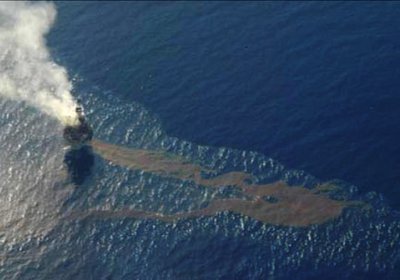From the standpoint of conventional political analysis, Julia Gillard has had a spectacular start to her reign as prime minister.
She wrested the position from Kevin Rudd with minimal bloodshed, announced she was going to neutralise the mining tax controversy by negotiating with the mining billionaires and was rewarded with a dramatic turnaround in the opinion polls.
Environment
While G20 leaders barely made mention of the climate crisis at the June 26-27 G20 summit in Toronto, Pablo Solon, Bolivia’s United Nations ambassador, was in town to encourage action on the “Cochabamba protocols”.
It is no surprise that Solon, also Bolivia’s chief climate negotiator, was not on the list of special invitees to G20 meetings. In April, Solon and the Bolivian government he represents organised the World People’s Conference on Climate Change and the Rights of Mother Earth in Cochabamba.
Eighty people gathered at the State School Teachers Union offices in Perth for the Socialist Ideas Conference over the weekend of June 26-27. Speakers included Jeyakumar Devaraj, Socialist Party of Malaysia MP, and Richard Downs, spokesperson for the Alyawarr People's Walk-off in the Northern Territory.
The ongoing disaster in the Gulf of Mexico caused by the April 20 explosion at the Deepwater Horizon oil rig has exposed the obscene behaviour of the world’s fourth-largest corporation, British Petroleum (BP).
Evidence has come from many sources revealing BP was aware of safety concerns, but did nothing about them.
Prime Minister Julia Gillard is enjoying a honeymoon in the polls since taking Kevin Rudd’s place. A July 2 Reuters Trend poll confirmed a series of polls since Gillard became PM on June 24, giving Labor the lead over the right-wing Coalition.
The June 26 Sydney Morning Herald said a Herald/Nielson poll found Greens support since Gillard took over had fallen from 15% to 8%.
But another crucial poll indicated the true nature of Gillard’s rise to power. As soon as she was installed as prime minister, the share price of the large mining corporations rose.
Mel Barnes, a well-known Tasmanian political activist, will contest the seat of Denison in the upcoming federal elections, for the Socialist Alliance. Barnes is a leading climate and renewable energy campaigner involved in Climate Action Hobart.
She has also campaigned for women’s rights, Palestine solidarity, refugee rights and Latin American solidarity. In 2006, Barnes went on a solidarity tour of Venezuela to learn about the revolutionary changes occurring there. Barnes stood for the Socialist Alliance in the recent state elections.
Australia’s leading conservation groups said in a joint statement on June 21 that concern about lack of action to provide safeguards against large-scale oil spills in Australia will be a high-profile issue in the next federal election.
Thirty-two environment groups — including the Australian Conservation Foundation, WWF Australia and Pew Environment Group — have called on all political parties to commit to a network of large marine sanctuaries this coming election to provide safeguards for Australia’s unique marine life.
Sand mining on Stradbroke Island, offshore from Brisbane, will be phased out by 2027, under a new plan announced by the Queensland state government on June 20. Most of the island will become national park and development of ecotourism will be the main industry.
In July, Socialist Alliance election candidates will be taking a trip to the Northern Territory to personally witness conditions under the federal government's intervention into Aboriginal communities.
SA youth candidates — and Resistance members — Jess Moore, Zane Alcorn and Ewan Saunders will join Indigenous activists, students, community groups and campaigners from across the country in Alice Springs for an important gathering of intervention-affected Aboriginal communities.
The Canadian province of Alberta is well known as a climate-destroying behemoth. The tar sands developments in its north are the single largest source of greenhouse gas emissions on the planet.
Less well known are the ambitions of its neighbouring province, British Columbia. It shares similar fossil fuel reserves and ambitions as Alberta. Vast coal and natural gas reserves are being opened at breakneck speed.
Construction is underway or planned for accompanying road, rail, pipeline and supertanker transport routes.
The world’s worst ever oil spill is also the biggest methane leak in human history, US government scientists have said.
The US Geological Survey’s “flow team” has estimated between 4.5 billion to 9 billion cubic feet of natural gas have escaped from BP’s Deepwater Horizon rig since it exploded in April, Associated Press said on June 19.
John Kessler, an oceanographer at the Texas A&M University, told AP the leak was “the most vigorous methane eruption in modern human history”. Scientists think methane makes up 40% to 70% of what is spilling from the damaged BP rig.
As climate change compels us to reduce carbon emissions, urban gardens that provide locally produced food are becoming an increasingly important model. The African Food Project is an urban, organic farm that grows traditional African vegetables for the African community around the outer western suburb of Blacktown.
- Previous page
- Page 287
- Next page









